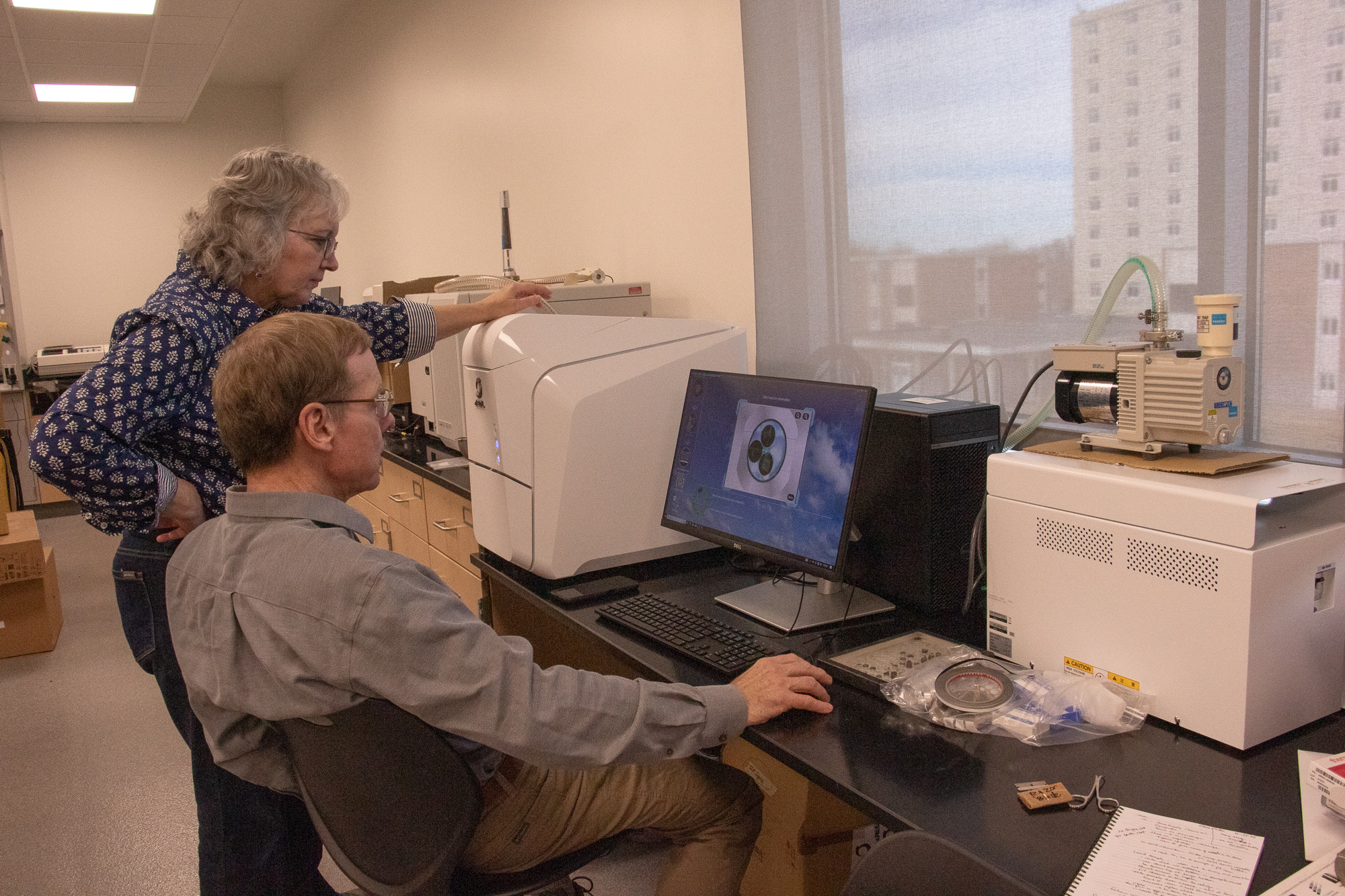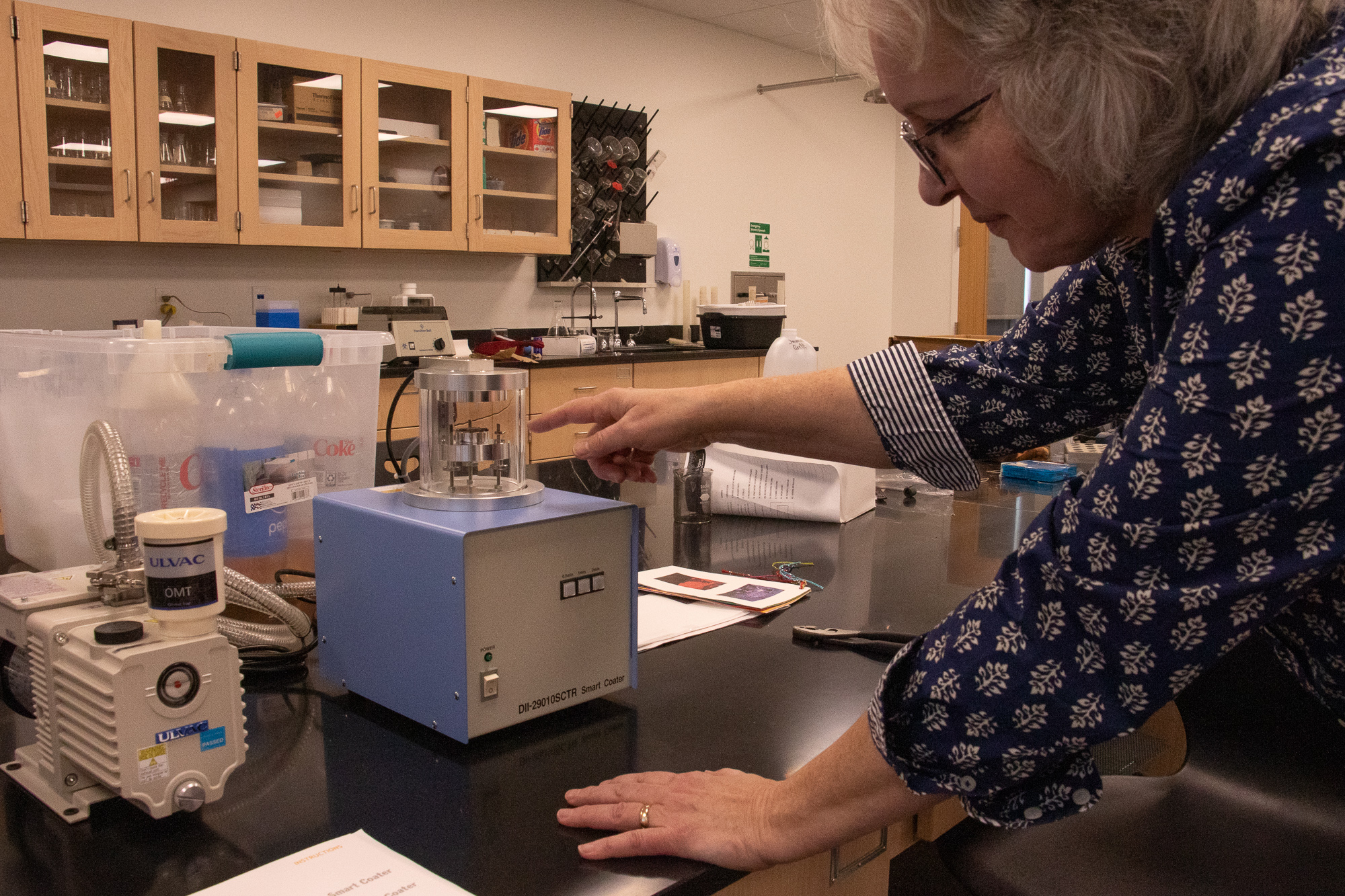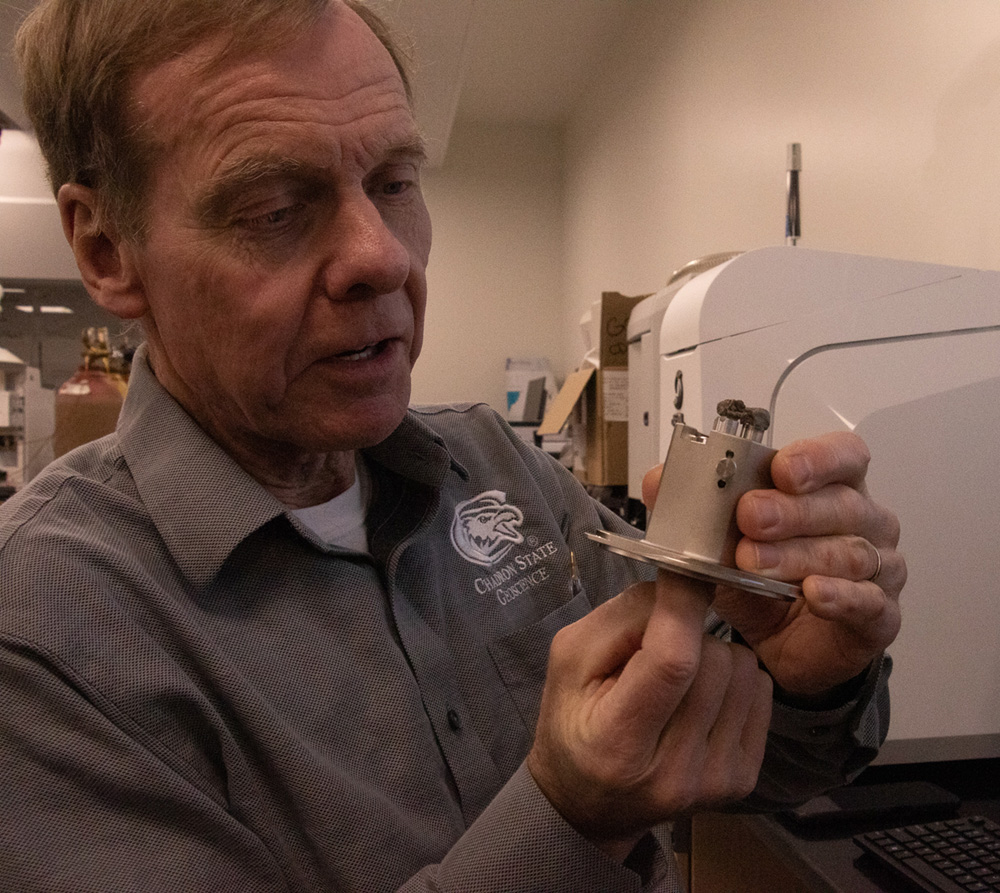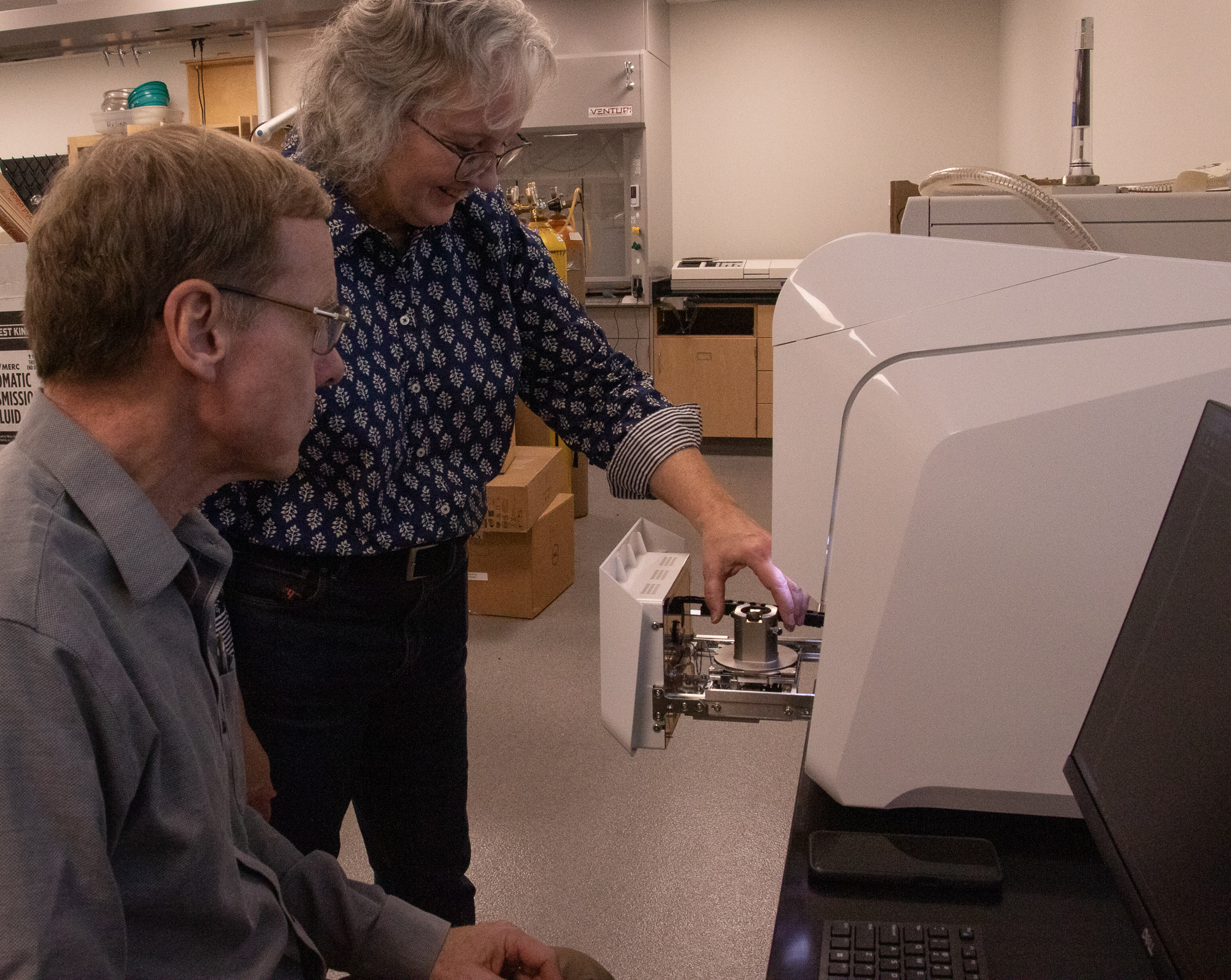Science program receives Scanning Electron Microscope

CHADRON – Chadron State College students and faculty will benefit from a $110,000 Scanning Electron Microscope (SEM). The equipment was purchased with the Coronavirus State and Local Fiscal Recovery Funds (CSLFRF) authorized by the American Rescue Plan Act, with funding passed through the State of Nebraska to the Board of Trustees of the Nebraska State Colleges.
The microscope works by bombarding the specimen with electrons, which only works in a vacuum. And to prevent buildup of electrical charge on the specimen, it must be coated with metal, if it is not already conductive.
Dr. Mike Leite, Professor of Physical Science, said the equipment will help students develop skills that potential employers want.
“You can think of applications in industry, law enforcement, environmental research, all of those, across the board. So many fields need another problem-solving skill, and that’s what our students can learn with this microscope,” he said.
He said the ability to collect different types of data and analyze it requires different thought processes.
“The more opportunities we can give our students to collect a wider array of data and then determine how to interpret that, the stronger their creative problem-solving and creative skills are going to be. Students will be able to integrate what they learn with this across all the sciences,” Leite said.
Dr. Joyce Hardy said the SEM will significantly expand the amount and type of research CSC students and faculty can conduct.
“The ability to visualize surface materials with great resolution as well as to analyze chemical element distribution and composition of samples will have significant application for medical, environmental, biological, and ecological research with direct application to our region,” Hardy said.
Leite, Hardy, and Dr. Ryan Morgan, Dean of Business, Mathematics, and Natural Sciences, have experience operating an SEM and plan to develop protocols and planning training sessions for faculty and students.
Category: Campus News, Physical and Life Sciences



